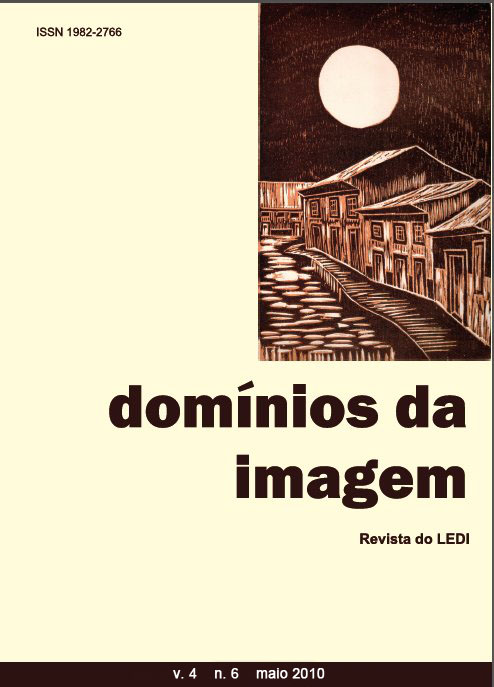Spatial apprehension in postwar Italian society
DOI:
https://doi.org/10.5433/2237-9126.2010v4n6p85Keywords:
Cinema, Social space, History of ItalyAbstract
This work aims to investigate the spatial understanding of the Italians in the period after the Second World War through the analysis of films Roberto Rossellini's Open City (1945), Vittorio De Sica's The Bicycle Thief (1948) and Federico Fellini's Nights Of Cabiria (1957).Downloads
References
BAZIN, André. Defesa de Rossellini. In: BAZIN, André. O Cinema: ensaios. São Paulo: Brasiliense, 1991b.
BAZIN, André. Ladrões de bicicleta. In: BAZIN, André. O Cinema: ensaios. São Paulo: Brasiliense, 1991c.
BAZIN, André. De Sica diretor. In: BAZIN, André. O Cinema: ensaios. São Paulo: Brasiliense, 1991d.
BAZIN, André. Cabíria, ou a viagem aos confins do neo-realismo. In: BAZIN, André. O Cinema: ensaios. São Paulo: Brasiliense, 1991e.
FABRIS, Mariarosaria. O Neo-realismo cinematográfico italiano. São Paulo: Edusp/ Fapesp, 1996.
FERRO, Marc. O filme: uma contra-análise da sociedade? In: FERRO, Marc. Cinema e História. Rio de Janeiro: Paz e Terra, 1992.
FRÉMONT, Armand. A região, espaço vivido. Coimbra: Almedina, 1980.
GOMES, Paulo Emílio Sales. Il generale della Rovere. In: GOMES, Paulo Emílio Sales. Crítica de Cinema no Suplemento Literário. Rio de Janeiro: Paz e Terra, 1982a.
GOMES, Paulo Emílio Sales. A solidão de Umberto D. In: GOMES, Paulo Emílio Sales. Crítica de Cinema no Suplemento Literário. Rio de Janeiro: Paz e Terra, 1982b.
GOMES, Paulo Emílio Sales. As noites de Fellini. In: GOMES, Paulo Emílio Sales. Crítica de Cinema no Suplemento Literário. Rio de Janeiro: Paz e Terra, 1982c.
Downloads
Published
How to Cite
Issue
Section
License
Copyright (c) 2010 Domínios da ImagemDomínios da Imagem adopts the Creative Commons Attribution 4.0 International License, therefore, the copyrights related to the published articles belong to the author(s), who grant the journal the exclusive right of first publication.
Under this license it is possible to: Share - copy and redistribute the material in any medium or format. Adapt - remix, transform, and build upon the material, giving due credit and providing a link to the license and indicating if changes were made.













 The works in this journal are licensed under Creative Commons .
The works in this journal are licensed under Creative Commons .